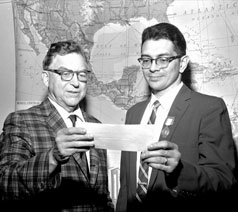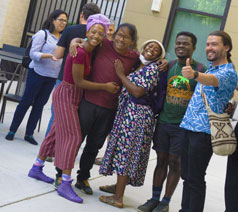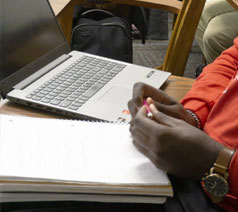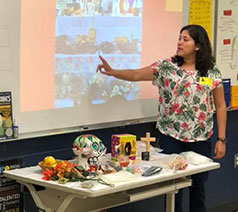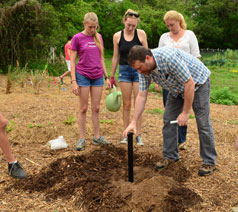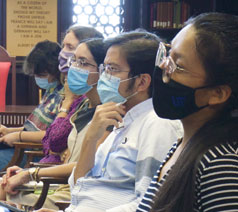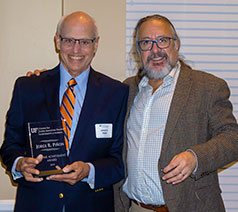rivers in nomos: sounding law in transit from the fluvial terrains of Western Amazonia
Event Start Date: February 28, 2025 4:15 PM
Event End Date: February 28, 2025 5:30 PM
.
rivers in nomos: sounding law in transit from the fluvial terrains of Western Amazonia
lecture by Dr. Richard Kernaghan
Friday, February 28 | 4:15 pm
Grinter 376
Talk title: rivers in nomos: sounding law in transit from the fluvial terrains of Western Amazonia
Speaker: Dr. Richard Kernaghan (Dept. of Anthropology, Center for Latin American Studies affiliate faculty)
Abstract:
What do landscapes bring to legal relations? How might reliefs of terrain move in manners that interrupt, modify, and even generate entanglements of law? This talk draws from sounds and soundings of river transport along the Trapecio amazónico in order to stress that landscapes are not merely prior to nation-state commands but crosscut them in ways obvious, if seldom considered. In a region where territorial borders of Peru, Colombia, and Brazil touch and blur, the material forces of rivers dominate in seasonal variations that are increasingly losing precision as climatic prediction. Even so, matters of transit bear witness to legal phenomena that can and do arise from riverine landscapes themselves, becoming apparent up close, because experientially direct. In the bellow of motors, filling and rattling an expanse… Or, in the metallic confrontations with glare and heat that slice waves and currents, all the while vulnerable to hidden, below surface threats of wood, rock, and other sedimentary debris.
One aim of this talk to give the notion of legal relations a broad, encompassing sense, irreducible to dictates and presuppositions derived from European imperial histories. Here, an idea of nomos, emergent in those same histories, unfolds as a conception of law inseverable from the earth. In contemporary, critical thought on jurisprudence, nomos, a word always traced to Ancient Greece, seems to reappear, if in the most varied of inflections—from founding acts to colonial land appropriations to nomadic transformations of territory and more—whenever there are suspicions about the origins of law or a need to find something adjacent, upstream, and forgotten in law’s ultimate sources. And if so, then rivers would become—within a gesture insisting on proximity—a good place to listen, to describe and, through repeated encounter, to begin to think. A second purpose of this talk is to weigh, in conversation with recent work by anthropologists, how atmosphere and terrain meet in ways that support a vibrant and vitalist understanding of legal phenomena, precisely where rivers themselves never fully detach from other bodies of water. Most of all, I will wonder how noise and clamor extend a salient across which territory and physical reliefs coincide, such that sound, tone and texture grasped ethnographically as material vibration no less than historical resonance can return an immanence, a needed concreteness, to the study of law.

